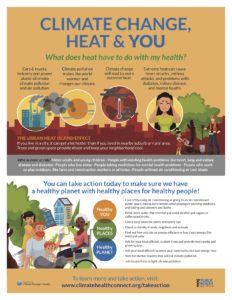
Climate and Health Posters
-
Focus Areas
Environmental Health -
Issues
Asthma, Climate Change, Heart Disease, Nutrition & Food Security -
Programs
Center for Climate Change and Health
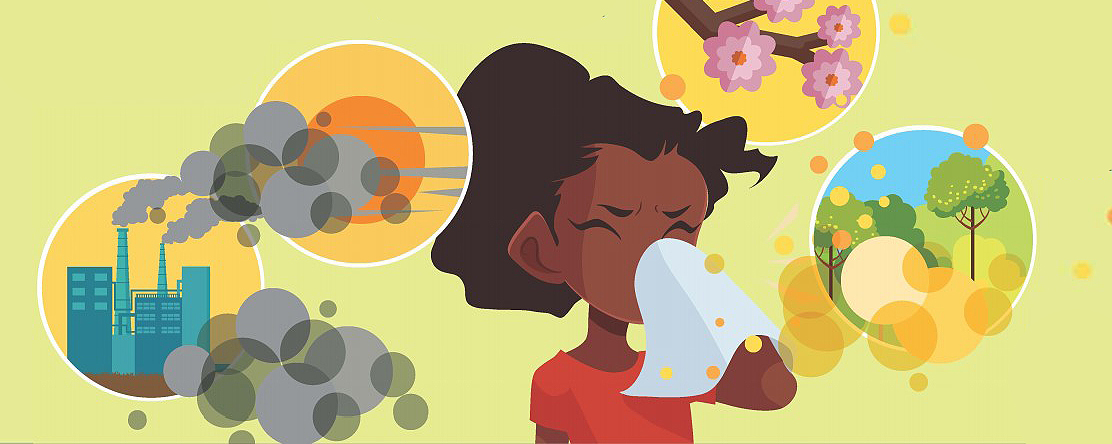
What does climate change have to do with allergies, heart health, heat-related diseases, asthma and our food?
Created by PHI’s Center for Climate Change and Health, download a new series of posters designed to help the public—including patients, families and communities—understand the health impacts of climate change and what they can do to protect themselves and the planet.
Each poster explains the link between climate change and health risks, identifies who is most vulnerable and provides basic recommendations that all people can take to protect themselves and take action to reduce climate change. These materials are perfect for a variety of settings including clinic offices, community centers, schools and elsewhere.
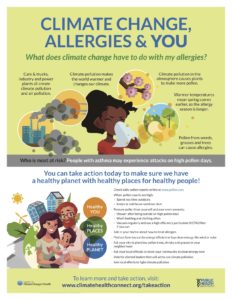 Download the poster. |
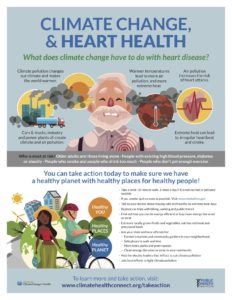 Download the poster. |
|
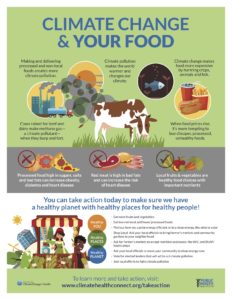 Download the poster. |
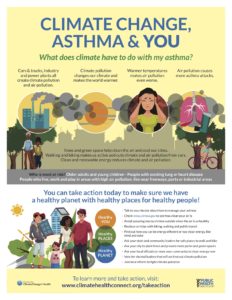 Download the poster. |
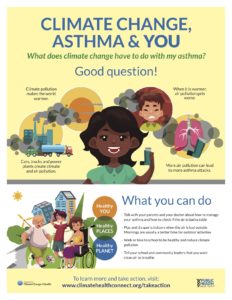 Download the poster. |
Posters are also available for download in letter size (8.5×11″):
- Climate Change and Allergies
- Climate Change and Heat
- Climate Change and Heart Health
- Climate Change and Your Food
- Climate Change and Asthma: Adults
- Climate Change and Asthma: Kids
Originally published by PHI's Center for Climate Change and Health
Work With Us
You change the world. We do the rest. Explore fiscal sponsorship at PHI.
Support Us
Together, we can accelerate our response to public health’s most critical issues.
Find Employment
Begin your career at the Public Health Institute.
